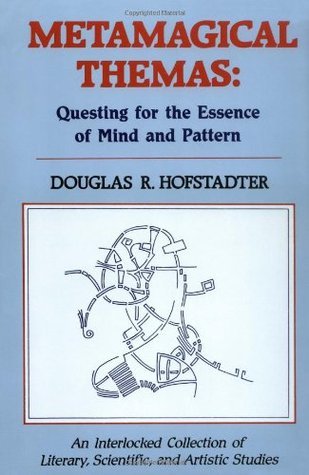
The Mind’s I: Fantasies and Reflections on Self and Soul
Book Description
What if the essence of your being is just an elaborate illusion? In *The Mind’s I*, Douglas R. Hofstadter weaves a thought-provoking tapestry of consciousness, identity, and the intricate dance between self and soul. Through a dazzling blend of philosophical musings and imaginative narratives, this exploration challenges every assumption about the nature of reality and what it means to be truly alive. With every turn of the page, the boundaries of thought blur, inviting readers to contemplate the very fabric of existence itself. Are we merely reflections in a mirror, or do we hold the key to understanding our own minds?
Quick Book Summary
"The Mind’s I: Fantasies and Reflections on Self and Soul," edited by Douglas R. Hofstadter and Daniel C. Dennett, is a captivating anthology that probes the mysteries of consciousness, identity, and the nature of self. Through an innovative blend of philosophical essays, literary excerpts, and thought experiments, the book asks readers to consider what makes "I" possible. The editors juxtapose classic and contemporary writings with their own commentaries, encouraging readers to examine ideas such as whether the self is an illusion, if consciousness emerges from physical processes, and whether machines could one day possess minds like ours. By interweaving provocative stories with reflective analysis, "The Mind’s I" invites readers to challenge assumptions about what it means to be alive, to have a mind, and to possess a soul.
Summary of Key Ideas
Table of Contents
The Illusion and Reality of the Self
"The Mind’s I" explores the perplexing concept of selfhood, questioning whether a stable, continuous "I" truly exists or is simply an elaborate construct of the brain. Through philosophical reflections and imaginative stories, the book presents the possibility that our sense of identity may be more fluid and illusory than intuition suggests. This theme recurs through selected writings and commentaries, challenging the notion of an immutable soul and inviting readers to contemplate the origins of their own self-awareness.
The Origins and Emergence of Consciousness
The anthology delves deeply into the emergence of consciousness, examining both scientific and philosophical perspectives on how subjective experience arises. By drawing from neuroscience, cognitive science, and artificial intelligence, contributors consider whether consciousness is an inevitable product of complex computation, or if it is somehow unique to biological organisms. Stories and philosophical thought experiments serve to highlight the difficulty of pinpointing where, or whether, consciousness begins.
Self-Reference and Strange Loops
One of the central motifs is the idea of self-reference and "strange loops"—recursive structures where a system refers to itself, as famously discussed in Hofstadter’s other work, "Gödel, Escher, Bach." Through literary and mathematical examples, the book demonstrates how self-reference gives rise to the paradoxes and richness of selfhood, making the mind both the observer and the observed. This looping nature is posited as fundamental to our understanding of personal identity and consciousness.
The Possibility of Machine Minds
The question of artificial minds is explored through both fiction and rigorous argumentation. The book asks whether a machine, sufficiently advanced, could possess consciousness or a "soul." Classic and speculative writings provide readers with scenarios in which the boundaries between biological and artificial minds blur, encouraging reflection on what, if anything, makes human minds unique. This leads to probing discussions about the nature of life, intelligence, and ethical responsibility toward possible machine minds.
The Nature of Personal Identity
Throughout the work, personal identity is interrogated through philosophical puzzles, such as the nature of memory, bodily continuity, and psychological traits. The anthology raises questions like: If all your memories and patterns of thought could be transferred to another body, would that individual still be you? By synthesizing diverse viewpoints and playful narratives, "The Mind’s I" leaves readers with a deep appreciation for the mysterious, evolving tapestry of mind and self.
Download This Summary
Get a free PDF of this summary instantly — no email required.





